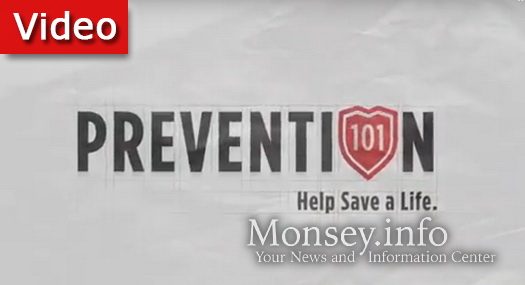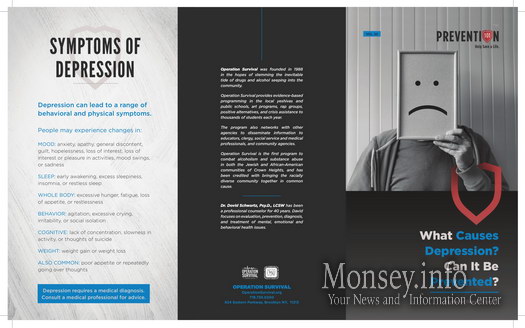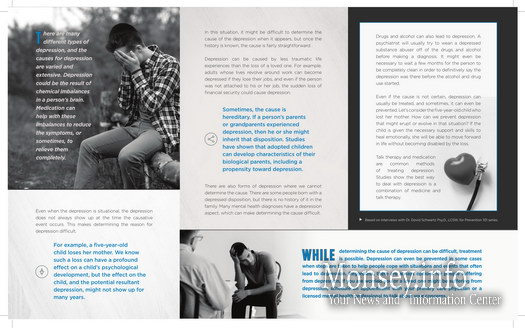
Prevention101: What Causes Depression? Can It Be Prevented?
There are many different types of depression, and the causes for depression are varied and extensive. Depression could be the result of chemical imbalances in a person’s brain. Medication can help with these imbalances to reduce the symptoms, or sometimes, to relieve them completely. Even when the depression is situational, the depression does not always show up at the time the causative event occurs. This makes determining the reason for depression difficult.
For example, a five-year-old child loses her mother. We know such a loss can have a profound effect on a child’s psychological development, but the effect on the child, and the potential resultant depression, might not show up for many years. In this situation, it might be difficult to determine the cause of the depression when it appears, but once the history is known, the cause is fairly straightforward.
Depression can be caused by less traumatic life experiences than the loss of a loved one. For example, adults whose lives revolve around work can become depressed if they lose their jobs, and even if the person was not attached to his or her job, the sudden loss of financial security could cause depression.
Sometimes, the cause is hereditary. If a person’s parents or grandparents experienced depression, then he or she might inherit that disposition. Studies have shown that adopted children can develop characteristics of their biological parents, including a propensity toward depression.There are also forms of depression where we cannot determine the cause. There are some people born with a depressed disposition, but there is no history of it in the family. Many mental health diagnoses have a depression aspect, which can make determining the cause difficult.
Drugs and alcohol can also lead to depression. A psychiatrist will usually try to wean a depressed substance abuser off of the drugs and alcohol before making a diagnosis. It might even be necessary to wait a few months for the person to be completely clean in order to definitively say the depression was there before the alcohol and drug use started.
Even if the cause is not certain, depression can usually be treated, and sometimes, it can even be prevented. Let’s consider the five-year-old child who lost her mother. How can we prevent depression that might erupt or evolve in that situation? If the child is given the necessary support and skills to heal emotionally, she will be able to move forward in life without becoming disabled by the loss.
Talk therapy and medication are commons methods of treating depression. Studies show the best way to deal with depression is a combination of medicine and talk therapy.
Sometimes, gaining a different perspective on life will help with a person’s depression, if the depression is situational and not chemical. When Elie Wiesel was told that Bernie Madoff had done away with all the savings he had invested, he said, “There are bigger things to lose in life than money.” For Wiesel, the loss of his life-savings was not as big of a deal as it would normally have been as he knew what truly devastating loss was, having survived the horrors of the Holocaust and watching his father die in front of his eyes. For him, losing money wasn’t so important. He had a good perspective on the situation and was able to get through this devastating financial loss without falling into depression. His reaction helped many other people dealing with the loss of their savings, because it offered them a different perspective on the situation.
While determining the cause of depression can be difficult, treatment is possible. Depression can even be prevented in some cases when steps are taken to help people cope with situations and events that often lead to depression. Regardless, there are always options for people suffering from depression. If you are worried you or a loved one might be suffering from depression, schedule an appointment with your primary care physician or a licensed mental health professional to talk about your concerns.
(Article is based on an interview with Dr Dovid Schwartz, Psy.D., LCSW for Operation Survival’s Prevention101series. Dr. Schwartz has been a professional counselor for 40 years. David focuses on evaluation, prevention, diagnosis, and treatment of mental, emotional and behavioral health issues)











